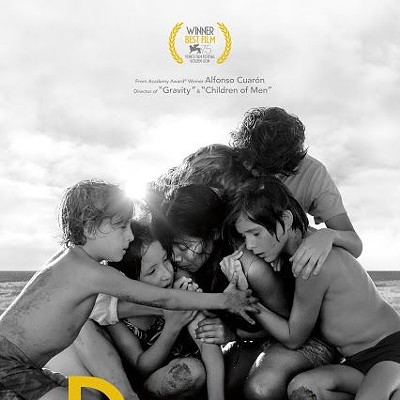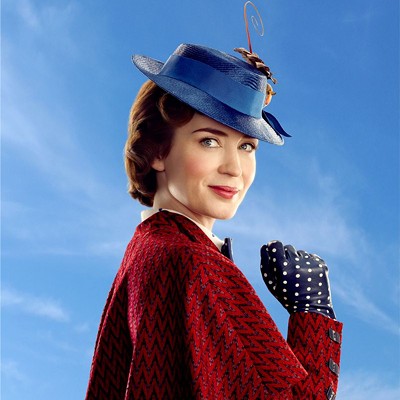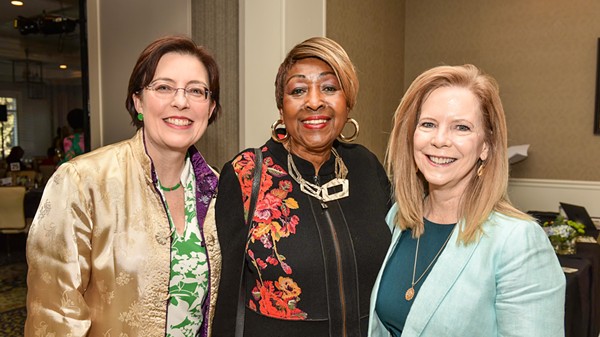Now Showing
[
{
"name": "Air - MedRect Combo - Inline Content 1",
"component": "14680855",
"insertPoint": "7",
"requiredCountToDisplay": "5",
"parentWrapperClass": "fdn-ads-inline-content-block"
},{
"name": "Air - MedRect Combo - Inline Content 2",
"component": "14680856",
"insertPoint": "15",
"requiredCountToDisplay": "9",
"parentWrapperClass": "fdn-ads-inline-content-block"
},{
"name": "Air - SVP - Leaderboard - Inline Content - 2",
"component": "16852291",
"insertPoint": "10",
"requiredCountToDisplay": "10",
"parentWrapperClass": "fdn-ads-inline-content-block"
},{
"name": "Air - SVP - Leaderboard - Inline Content - 3",
"component": "16852292",
"insertPoint": "20",
"requiredCountToDisplay": "18",
"parentWrapperClass": "fdn-ads-inline-content-block"
},{
"name": "Air - SVP - Leaderboard - Inline Content - 1",
"component": "16852290",
"insertPoint": "25",
"requiredCountToDisplay": "22",
"parentWrapperClass": "fdn-ads-inline-content-block"
}
]
LEMONY SNICKETS A SERIES OF UNFORTUNATE EVENTS PP 1/2
Jim Carrey has shrewdly been mixing up his career choices, offering award-flirting turns in movies like Man On the Moon and Eternal Sunshine of the Spotless Mind while placating the masses with his perfected shtick in such titles as Bruce Almighty and Liar Liar. Yet even in his broadest work, its difficult to see the gears in motion his comedic instincts are so fine-tuned, he morphs into his personas with amazing ease. Not so in this new picture. As Count Olof, a villainous actor who seeks to inherit a fortune by knocking off three intelligent orphans (Liam Aiken, Emily Browning, and Kara and Shelby Hoffman alternating as baby Sunny), Carrey delivers a disappointing performance, the sort of calculated turn we had come to routinely expect from Robin Williams until his recent dramatic awakening. Luckily, other elements of the project come to the rescue. The children are aptly cast, and the translations of baby Sunnys coos and cackles are very funny. Jude Law provides the voice-over narration as writer Lemony Snicket, and his moody musings make up the bulk of the best lines in Robert Gordons screenplay.
KINSEY PPP 1/2
This is an exploration of the life and times of a complex individual, a man whose outrageous career choices were often at odds with the rather square nature by which he presented himself. The rumors surrounding Kinsey some truthful (his bisexuality), some nonsensical (the notion that he was a Communist trying to undermine American decency by talking about s-e-x), some still being debated today (did his data involving children indicate he was a pedophile, or merely a neutral gatherer of others immoral activities?) made him a constant target of the religious right, who as the past presidential campaign once again confirmed are only satisfied when all Americans are ideologically marching lockstep to their own narrow-minded principles. Kinsey therefore emerges not only as a movie about another time but as a movie about our time, a reminder that progress can only be made when someones willing to step up to the plate and challenge conformity and complacency. During those years in the late 30s and 40s, Alfred Kinsey (marvelously played by Liam Neeson) had plenty to challenge. Convinced of the need for sex education that was informative and accurate as opposed to the fire-and-brimstone tirades of a repressed colleague (Tim Curry) Kinsey opts to teach a sex ed class, but soon finds that he doesnt have answers for many of his students questions. A sexual novice himself hes a virgin when he marries student Clara McMillen (Laura Linney, matching her costar step for step) he then assembles a research team and begins collecting valuable data regarding all forms of human sexuality. He interviews college students, scouts the gay bars, and even enters into a homosexual romance with one of his assistants (Peter Sarsgaard). But Kinseys research comes at a price, particularly in the way this difficult man subjugates his emotions and empathy for others in pursuit of his science. Kinsey, sharply scripted and packed with powerhouse performances (look for John Lithgow packing a punch as Alfreds Bible-thumping dad), pulls back the covers with aplomb, exposing its subject even as it hopes to reveal some naked truths about ourselves.
SPANGLISH PPP
Already, theres been a lot of talk regarding the often odious behavior of the four characters at the center of the ferocious water-cooler piece Closer. Yet I would gladly invite this quartet over to my house for Christmas dinner if in return I would never have to spend another minute with Tea Leonis unbearable character from James L. Brooks Spanglish. With an Oscar out of the question, Leoni should probably win some sort of Good Sport award for enduring the humiliations that Brooks throws her way in this otherwise easy-to-take comedy-drama. The actress, who already played (nicely, I might add) a neurotic in Flirting With Disaster, is now forced to take that characterization to the extreme her Deborah Clasky is presented as a miserable excuse for a companion, a wife and mother whose behavior doesnt make her intriguing, merely insufferable. The movies true star is a newcomer to American cinema, celebrated Spanish actress Paz Vega. Vega delivers a luminescent performance in the movies largest part: Flor, a Mexican immigrant with brainy 12-year-old daughter Cristina (Shelbie Bruce) in tow. Flor lands a job as housekeeper for Debbie Klasky and her husband John (Adam Sandler), a sensitive chef constantly working at being a good dad to an insecure daughter (terrific Sarah Steele) and a patient husband to his lunatic wife. But as Debbies behavior continues to alienate everyone around her, John finds himself seeking solace in the company of Flor, a development that could easily lead to complications down the line.
Sandler has rarely been this laid back on screen, while Cloris Leachman, as Leonis booze-guzzling mother, sparkles in the sort of colorful role that usually wins veteran actors an honor or two during awards season.
OCEANS TWELVE PP 1/2
As one of the proud members of Americas Eleven i.e. one of those 11 moviegoers in the continental US who didnt understand the big deal about the box office smash Oceans Eleven my expectations werent exactly sky-high for Oceans Twelve. Except for a couple of self-contained set pieces and some fine work by Brad Pitt, Elliot Gould and Bernie Mac, Steven Soderberghs 2001 remake of the 1960 Rat Pack yarn wasted lots of top talent in a threadbare project that had nothing going on beneath its air of cool collectedness.
Oceans Twelve is more of the same: a bunch of overpaid, overpampered movie stars getting together with their directing buddy to shoot scenes for a movie in between their nonstop partying through European and American hot spots. Only this time, instead of feeling like I was being forcibly ejected from the club, I at least felt like I was allowed a seat at the bar. Oceans Twelve isnt much better than its predecessor, but at least theres a more focused attempt to create something remotely resembling a motion picture experience.
CLOSER PPP1/2
How much one enjoys Closer fully depends on how charitable one feels toward the four characters at the center of Mike Nichols lacerating new film. These men and women, originally created by scripter Patrick Marber for his stage play of the same name, are alternately petty, vicious, narcissistic, perverse, illogical and frustrating. Viewers not interested in shifting through the rubble of these peoples immorality in an effort to locate some common truths will have no use for this picture, surely the most divisive film about modern relations since Eyes Wide Shut. Others willing to dig deeper will be rewarded not only with some choice dialogue and a quartet of finely etched portrayals but also with a heady buzz that will remain long after the movies over. Set in London, the movie centers on two British males and two American females all strangers when the story opens. Dan (Jude Law) is a caddish obituary writer who falls for sweet-natured stripper Alice (Natalie Portman); Anna (Julia Roberts) is a moody photographer who ends up attached to dermatologist Larry (Clive Owen, nailing the films most complex role). With time jumps that will catch the daydreaming viewer off guard, the film tracks relationships, as Dan chases Anna, Larry sniffs around Alice, and all four characters take the notion of brutal honesty to such an extreme that their words suddenly qualify as deadly weapons. Many will criticize the film because the characters motivations dont always make sense and their actions arent often in their own best interest. And that differs from real life exactly how?
BLADE: TRINITY P1/2
Blade II was that rare sequel that managed to trump the original, but the franchise ascension ends there. Blade: Trinity is easily the least of three, an overlong action yarn that has nothing fresh to say on the subject of vampires nor on the curious holding pattern of Wesley Snipes career.
ALEXANDER P
Alexander isnt just one of the worst movies of the year - its the worst film ever made by Oliver Stone, an immensely talented filmmaker who, three Oscar wins notwithstanding, has never received enough credit for a strong filmography. But hes gone terribly astray with Alexander. Colin Farrell gets trampled under the weight of Stones expectations in tackling the role of Alexander, the warrior king whose claim to fame was conquering most of the known world by the time he was Ashton Kutchers present age. Anthony Hopkins provides the doddering exposition - lots and lots and lots of exposition - as Alexander pal Ptolemy, who, 40 years later, relates their adventures with all the enthusiasm of a theater employee removing bubble gum from under the armrests. As Alexanders parents, Angelina Jolie (sporting an accent that suggests shes channeling Bela Lugosi) and Val Kilmer get to bellow and howl and gnash their teeth, to little avail. The homoerotic content (Alexander was bisexual), which had been receiving more gossip-rag ink than any other aspect of the film, is conveyed through an endless series of demure looks between the male players; this skirting around the issue may make the movie more palatable to a nation thats passing anti-gay measures with Aryan expediency, but it also adds a campy quality thats furthered enhanced by laughable dialogue.
NATIONAL TREASURE PP
Theres a certain crazy appeal to the central thrust of National Treasure, which suggests that George Washington, Benjamin Franklin and other Founding Fathers did such an exemplary job of hiding a sizable bounty that the only way to find it is to unscramble the clues that have been hidden on the Declaration of Independence, the Liberty Bell and other mainstays of American History 101. This finds Nicolas Cage (as the do-gooder who seeks to protect the treasure from greedy foreigners) again turning his back on his talents to sleepwalk through yet another undemanding part. The only treasure connected with this film is the gargantuan paycheck the actor received for his somnambular contribution.
FINDING NEVERLAND PPP
Almost one year after being treated to a delightful live-action version of Peter Pan, we now get a fanciful tale that seeks to explain how playwright J.M. Barrie initially came up with the idea for this childrens classic. What ends up on the screen is as much fiction as fact, but its the sort of inspirational saga that will make audiences wish this was the way it really happened. A gentle Johnny Depp is just right as Barrie, who, as the story begins, is unhappy with both his work and with his marriage to a beauty (Radha Mitchell) who doesnt share his passions. He eventually finds inspiration through a widow (Kate Winslet) and her four sons, but these newly formed friendships are hampered by interference from the widows stern mother (Julie Christie) as well as his own neglected wife.
Jim Carrey has shrewdly been mixing up his career choices, offering award-flirting turns in movies like Man On the Moon and Eternal Sunshine of the Spotless Mind while placating the masses with his perfected shtick in such titles as Bruce Almighty and Liar Liar. Yet even in his broadest work, its difficult to see the gears in motion his comedic instincts are so fine-tuned, he morphs into his personas with amazing ease. Not so in this new picture. As Count Olof, a villainous actor who seeks to inherit a fortune by knocking off three intelligent orphans (Liam Aiken, Emily Browning, and Kara and Shelby Hoffman alternating as baby Sunny), Carrey delivers a disappointing performance, the sort of calculated turn we had come to routinely expect from Robin Williams until his recent dramatic awakening. Luckily, other elements of the project come to the rescue. The children are aptly cast, and the translations of baby Sunnys coos and cackles are very funny. Jude Law provides the voice-over narration as writer Lemony Snicket, and his moody musings make up the bulk of the best lines in Robert Gordons screenplay.
KINSEY PPP 1/2
This is an exploration of the life and times of a complex individual, a man whose outrageous career choices were often at odds with the rather square nature by which he presented himself. The rumors surrounding Kinsey some truthful (his bisexuality), some nonsensical (the notion that he was a Communist trying to undermine American decency by talking about s-e-x), some still being debated today (did his data involving children indicate he was a pedophile, or merely a neutral gatherer of others immoral activities?) made him a constant target of the religious right, who as the past presidential campaign once again confirmed are only satisfied when all Americans are ideologically marching lockstep to their own narrow-minded principles. Kinsey therefore emerges not only as a movie about another time but as a movie about our time, a reminder that progress can only be made when someones willing to step up to the plate and challenge conformity and complacency. During those years in the late 30s and 40s, Alfred Kinsey (marvelously played by Liam Neeson) had plenty to challenge. Convinced of the need for sex education that was informative and accurate as opposed to the fire-and-brimstone tirades of a repressed colleague (Tim Curry) Kinsey opts to teach a sex ed class, but soon finds that he doesnt have answers for many of his students questions. A sexual novice himself hes a virgin when he marries student Clara McMillen (Laura Linney, matching her costar step for step) he then assembles a research team and begins collecting valuable data regarding all forms of human sexuality. He interviews college students, scouts the gay bars, and even enters into a homosexual romance with one of his assistants (Peter Sarsgaard). But Kinseys research comes at a price, particularly in the way this difficult man subjugates his emotions and empathy for others in pursuit of his science. Kinsey, sharply scripted and packed with powerhouse performances (look for John Lithgow packing a punch as Alfreds Bible-thumping dad), pulls back the covers with aplomb, exposing its subject even as it hopes to reveal some naked truths about ourselves.
SPANGLISH PPP
Already, theres been a lot of talk regarding the often odious behavior of the four characters at the center of the ferocious water-cooler piece Closer. Yet I would gladly invite this quartet over to my house for Christmas dinner if in return I would never have to spend another minute with Tea Leonis unbearable character from James L. Brooks Spanglish. With an Oscar out of the question, Leoni should probably win some sort of Good Sport award for enduring the humiliations that Brooks throws her way in this otherwise easy-to-take comedy-drama. The actress, who already played (nicely, I might add) a neurotic in Flirting With Disaster, is now forced to take that characterization to the extreme her Deborah Clasky is presented as a miserable excuse for a companion, a wife and mother whose behavior doesnt make her intriguing, merely insufferable. The movies true star is a newcomer to American cinema, celebrated Spanish actress Paz Vega. Vega delivers a luminescent performance in the movies largest part: Flor, a Mexican immigrant with brainy 12-year-old daughter Cristina (Shelbie Bruce) in tow. Flor lands a job as housekeeper for Debbie Klasky and her husband John (Adam Sandler), a sensitive chef constantly working at being a good dad to an insecure daughter (terrific Sarah Steele) and a patient husband to his lunatic wife. But as Debbies behavior continues to alienate everyone around her, John finds himself seeking solace in the company of Flor, a development that could easily lead to complications down the line.
Sandler has rarely been this laid back on screen, while Cloris Leachman, as Leonis booze-guzzling mother, sparkles in the sort of colorful role that usually wins veteran actors an honor or two during awards season.
OCEANS TWELVE PP 1/2
As one of the proud members of Americas Eleven i.e. one of those 11 moviegoers in the continental US who didnt understand the big deal about the box office smash Oceans Eleven my expectations werent exactly sky-high for Oceans Twelve. Except for a couple of self-contained set pieces and some fine work by Brad Pitt, Elliot Gould and Bernie Mac, Steven Soderberghs 2001 remake of the 1960 Rat Pack yarn wasted lots of top talent in a threadbare project that had nothing going on beneath its air of cool collectedness.
Oceans Twelve is more of the same: a bunch of overpaid, overpampered movie stars getting together with their directing buddy to shoot scenes for a movie in between their nonstop partying through European and American hot spots. Only this time, instead of feeling like I was being forcibly ejected from the club, I at least felt like I was allowed a seat at the bar. Oceans Twelve isnt much better than its predecessor, but at least theres a more focused attempt to create something remotely resembling a motion picture experience.
CLOSER PPP1/2
How much one enjoys Closer fully depends on how charitable one feels toward the four characters at the center of Mike Nichols lacerating new film. These men and women, originally created by scripter Patrick Marber for his stage play of the same name, are alternately petty, vicious, narcissistic, perverse, illogical and frustrating. Viewers not interested in shifting through the rubble of these peoples immorality in an effort to locate some common truths will have no use for this picture, surely the most divisive film about modern relations since Eyes Wide Shut. Others willing to dig deeper will be rewarded not only with some choice dialogue and a quartet of finely etched portrayals but also with a heady buzz that will remain long after the movies over. Set in London, the movie centers on two British males and two American females all strangers when the story opens. Dan (Jude Law) is a caddish obituary writer who falls for sweet-natured stripper Alice (Natalie Portman); Anna (Julia Roberts) is a moody photographer who ends up attached to dermatologist Larry (Clive Owen, nailing the films most complex role). With time jumps that will catch the daydreaming viewer off guard, the film tracks relationships, as Dan chases Anna, Larry sniffs around Alice, and all four characters take the notion of brutal honesty to such an extreme that their words suddenly qualify as deadly weapons. Many will criticize the film because the characters motivations dont always make sense and their actions arent often in their own best interest. And that differs from real life exactly how?
BLADE: TRINITY P1/2
Blade II was that rare sequel that managed to trump the original, but the franchise ascension ends there. Blade: Trinity is easily the least of three, an overlong action yarn that has nothing fresh to say on the subject of vampires nor on the curious holding pattern of Wesley Snipes career.
ALEXANDER P
Alexander isnt just one of the worst movies of the year - its the worst film ever made by Oliver Stone, an immensely talented filmmaker who, three Oscar wins notwithstanding, has never received enough credit for a strong filmography. But hes gone terribly astray with Alexander. Colin Farrell gets trampled under the weight of Stones expectations in tackling the role of Alexander, the warrior king whose claim to fame was conquering most of the known world by the time he was Ashton Kutchers present age. Anthony Hopkins provides the doddering exposition - lots and lots and lots of exposition - as Alexander pal Ptolemy, who, 40 years later, relates their adventures with all the enthusiasm of a theater employee removing bubble gum from under the armrests. As Alexanders parents, Angelina Jolie (sporting an accent that suggests shes channeling Bela Lugosi) and Val Kilmer get to bellow and howl and gnash their teeth, to little avail. The homoerotic content (Alexander was bisexual), which had been receiving more gossip-rag ink than any other aspect of the film, is conveyed through an endless series of demure looks between the male players; this skirting around the issue may make the movie more palatable to a nation thats passing anti-gay measures with Aryan expediency, but it also adds a campy quality thats furthered enhanced by laughable dialogue.
NATIONAL TREASURE PP
Theres a certain crazy appeal to the central thrust of National Treasure, which suggests that George Washington, Benjamin Franklin and other Founding Fathers did such an exemplary job of hiding a sizable bounty that the only way to find it is to unscramble the clues that have been hidden on the Declaration of Independence, the Liberty Bell and other mainstays of American History 101. This finds Nicolas Cage (as the do-gooder who seeks to protect the treasure from greedy foreigners) again turning his back on his talents to sleepwalk through yet another undemanding part. The only treasure connected with this film is the gargantuan paycheck the actor received for his somnambular contribution.
FINDING NEVERLAND PPP
Almost one year after being treated to a delightful live-action version of Peter Pan, we now get a fanciful tale that seeks to explain how playwright J.M. Barrie initially came up with the idea for this childrens classic. What ends up on the screen is as much fiction as fact, but its the sort of inspirational saga that will make audiences wish this was the way it really happened. A gentle Johnny Depp is just right as Barrie, who, as the story begins, is unhappy with both his work and with his marriage to a beauty (Radha Mitchell) who doesnt share his passions. He eventually finds inspiration through a widow (Kate Winslet) and her four sons, but these newly formed friendships are hampered by interference from the widows stern mother (Julie Christie) as well as his own neglected wife.

























